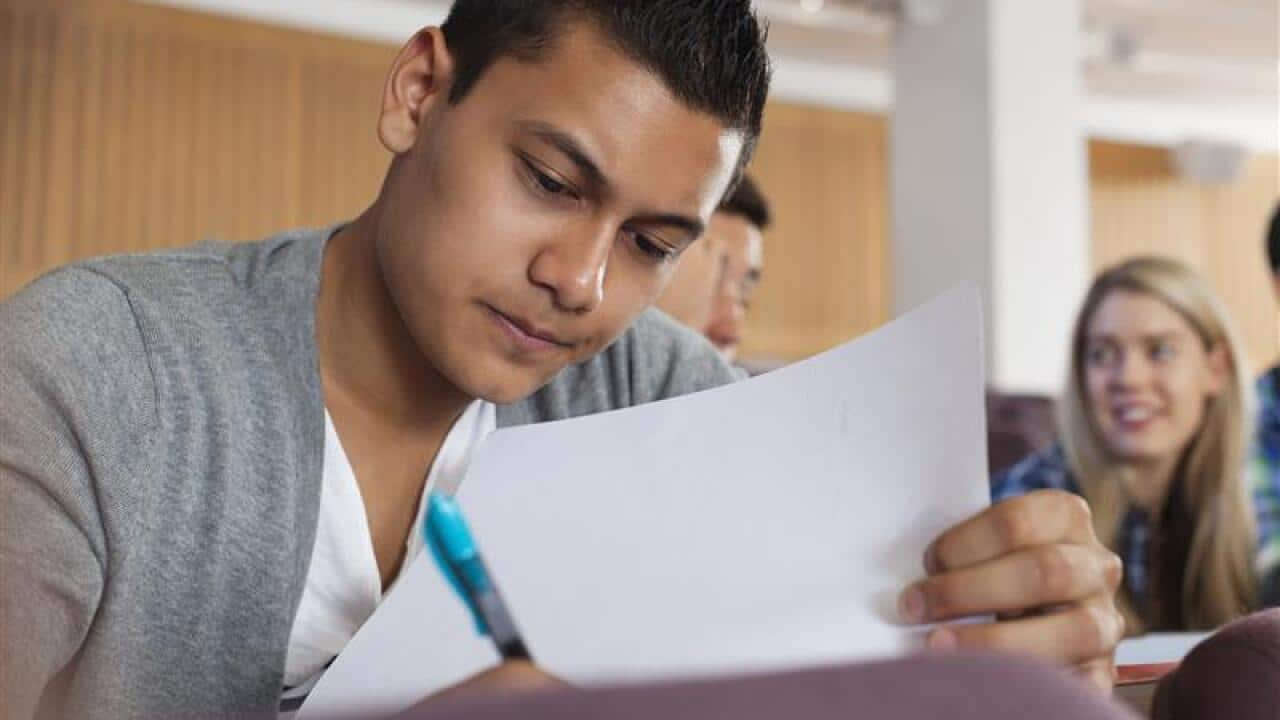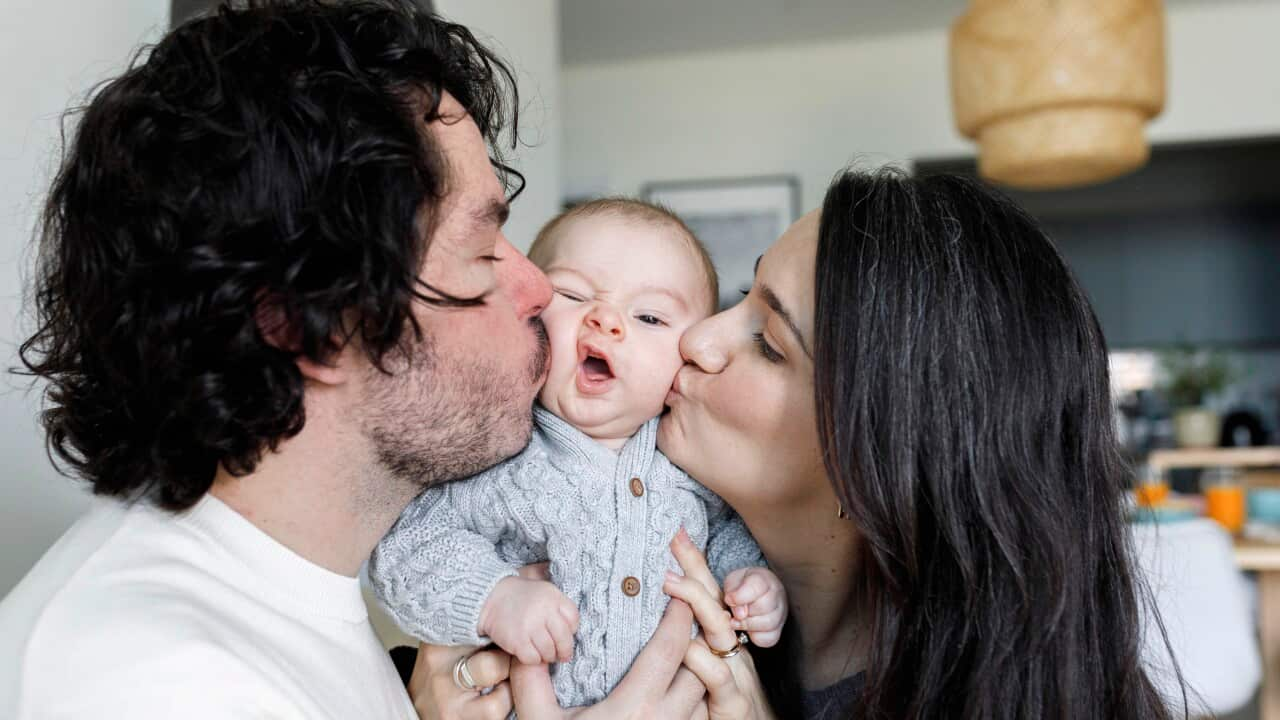The Australian Gambling Research Centre surveyed more than 2,000 people who gamble from across Australia in June and July when the NRL and AFL rebooted its 2020 competitions.
- The research shows young men increased both their frequency and spending on gambling during the COVID-19 lockdowns
- 20 per cent of people reported the first gambling when they were under 18
- Excessive computer gaming could lead to gambling addiction due to similar structural and aesthetic features
Lead researcher on the study, Dr Rebecca Jenkinson, says that one-in-three participants signed up for new betting accounts, and the number who gambled more than four times a week increased from 23 to 32 per cent.
The young men, aged 18 – 34, really increased both their frequency and spending on gambling during COVID.
Jenkinson says the key reasons young men reported when explaining motivations behind their increased gambling activities are the availability of gambling products, the ease of access, feelings of isolation and boredom.
Gambling in CALD communities
The few studies that have attempted to measure gambling participation in CALD communities have generally found that migrants face additional risk factors of developing gambling problems due to settlement experiences and lack of culturally appropriate and accessible alternative activities. Dr Joyce Jiang is a Health Promotion Manager at Multicultural Centre for Women’s Health.
Dr Joyce Jiang is a Health Promotion Manager at Multicultural Centre for Women’s Health.

Source: Getty Images/GCShutter
She says people from migrant and refugee backgrounds tend to gamble less than the overall population.
However, the rate of gambling for some migrant communities, such as Vietnamese, Chinese, Greek, and Arabic-speaking population is said to be around five times greater than the wider community.
Senior Lecturer in Psychology at Victoria University, Dr Keis Ohtsuka, says CALD communities may have some predisposition to develop unrealistic expectations about the outcomes of gambling activities because of a combination of beliefs about luck and chance people entertain in their respective culture.
For instance, you believe that good deeds carried out to others will be eventually rewarded by a good gambling outcome, so the notion of the karma is now reason and rationale that you may have a better chance in winning.
In Australia, gambling is a prolific activity. The latest statistics published in the show that Australia is by far the gambling capital of the world, losing more than $24 billion a year.
Researchers into gambling cognition agree that there are links between gambling-related problems and experiencing anxiety and depression. Dr Keis Ohtsuka says gambling addiction, as well as mental health issues, are generally not very well understood in CALD communities and people may regard them as a genetic factor or some fixed personality trait.
Dr Keis Ohtsuka says gambling addiction, as well as mental health issues, are generally not very well understood in CALD communities and people may regard them as a genetic factor or some fixed personality trait.

Source: Carsten Rehder/picture alliance via Getty Images
The problem gamblers may not know whom to approach. It is very dangerous for them to acknowledge the existence of a problem.
Bilingual Clinical Consultant at Multicultural Problem Gambling Service for NSW, Nipunika Gunawardena identified stigma and shame as major barriers to help-seeking for problem gambling among migrant and refugee communities.
One thing that we see is that for every person that gambles about ten people are being affected because of gambling.
With limited opportunities for land-based gambling during COVID-19, Rebecca Jenkinson says the ARGC's research showed the median amount gambled dropped for men and women older than 34 from 23 per cent to eight per cent.
Among all participants, females, who spent their money mainly on lotto and lottery products, were less at risk of gambling-related problems than males, 67 per cent compared to 84 per cent.
However, for Jenkinson biggest concern is the group of young men, aged 18 to 34, who have increased their median monthly gambling expenditure from $687 to $1,075 according to her study.
She says nine out of ten young men from her study are already experiencing some form of gambling-related harm.
We found that around 20 per cent of people reported the first gambling when they were under 18.
Gaming's impact on gambling
Computer gaming is one of the favourite social past time for many Australian adolescents. Nipunika Gunawardena says Australian authorities do not regulate most of the online gambling websites, and some advertise their products via computer games.
Nipunika Gunawardena says Australian authorities do not regulate most of the online gambling websites, and some advertise their products via computer games.

Source: Getty Images/Jessie Casson
Moreover, some games characters can visit casinos and buy so-called ‘loot’ boxes for real-world money which provides players with random rewards, just like in online gambling.
There is no proof of identity, so even younger teenagers or young adults can easily access these websites.
For in-language fact sheets and brochures on a range of different topics around problem gambling, including how to talk to your teens about digital gaming, visit the website.
for New South Wales offers confidential, free telephone or face-to-face counselling in a preferred language on 1800 856 800.
In Victoria, Gambler’s Help provides free and confidential support in Arabic, Cantonese Mandarin and Vietnamese. An interpreter can be arranged for other languages on request. Visit more information or call 1800 858 858.
If you are deaf or have a hearing or speech impairment, contact Gambler’s Help through the National Relay Service. For more information, visit .
Chat counselling, email support and self-help services are free, confidential and available 24/7 at across Australia.






